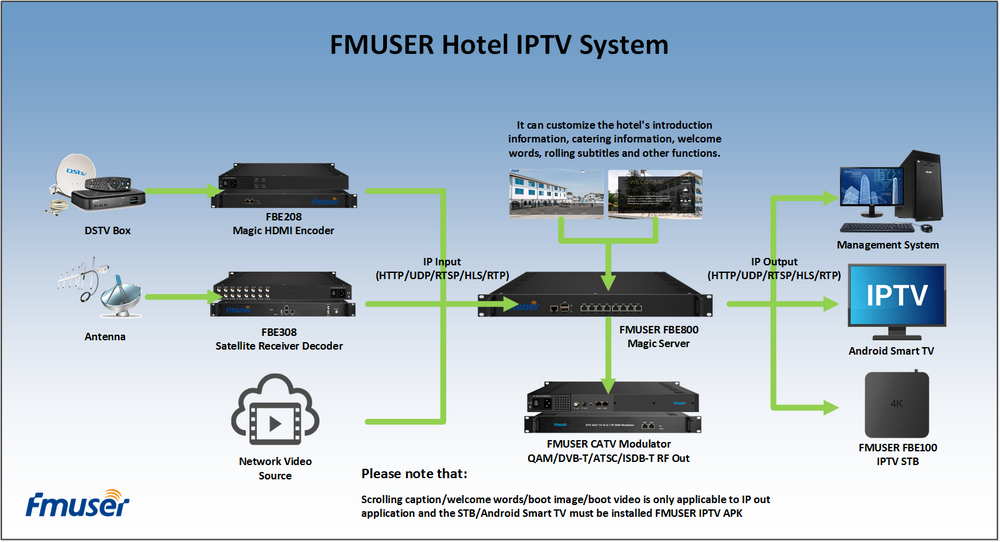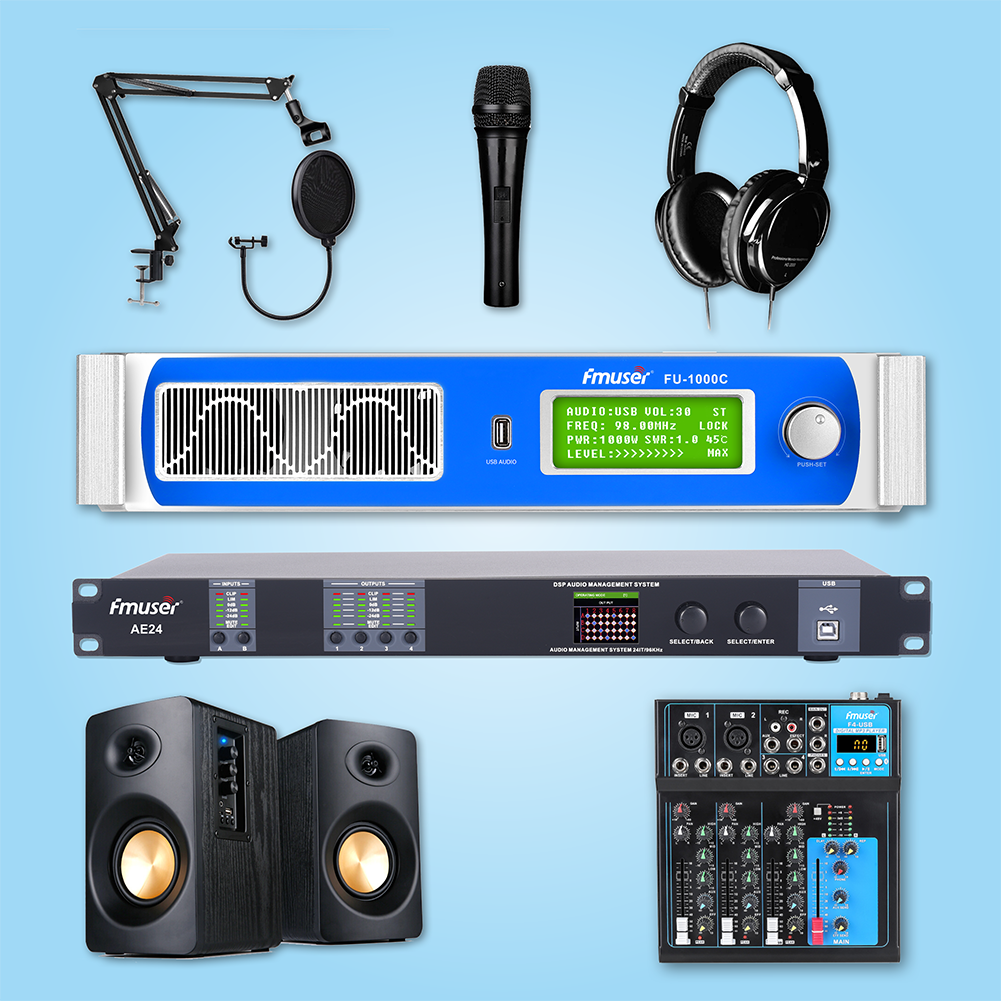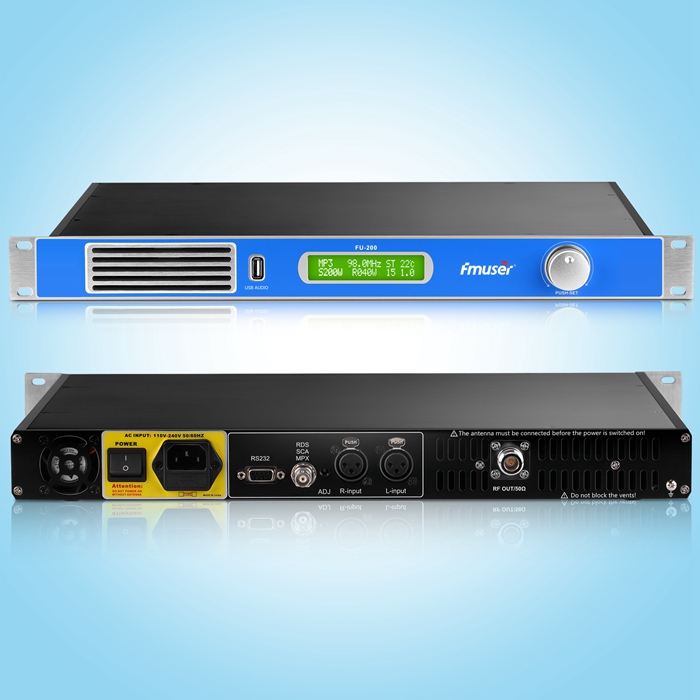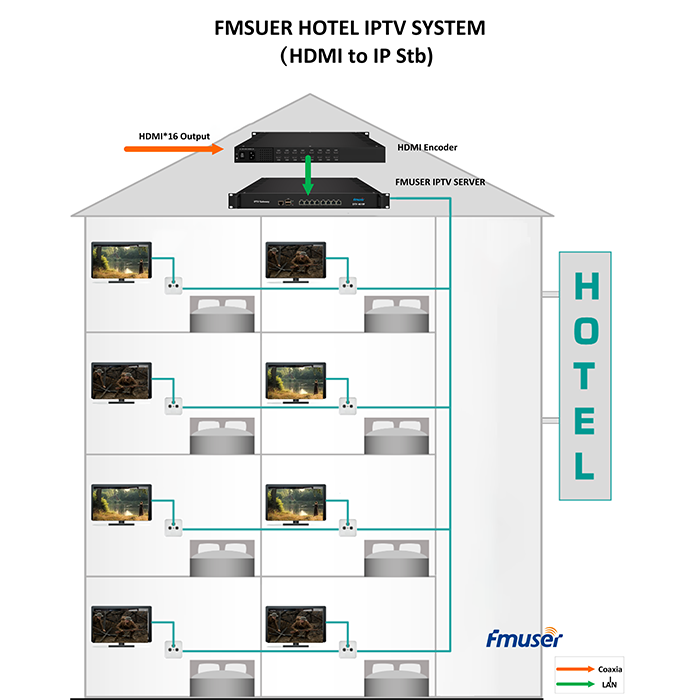Radio topic interactive programs are an important form of radio interactive programs, which are different from interactive programs such as hotline interviews, on-demand, and consultation. Topic interaction means that the host focuses on the same topic, attracts audience participation, and selects and broadcasts interactive information in real time. program. The setting of the topic is the initial preparation link of the topic interactive program, and it is also a crucial link. A good topic means that the show is half successful.
The choice of topic should have principles and goals.
The audience's participation in the topic discussion of the program is not purely for entertainment, but also includes the willingness to express opinions and release emotions. Therefore, the moderator should not regard topic interaction as a simple time-making or a supplement to a lively atmosphere. In addition to increasing the audibility of the content of the program, topics also have the function of communicating with the audience and allowing the audience to express their opinions. Therefore, the selection of topics must have a clear purpose and adhere to certain principles.
1. Establish a correct communication concept
Broadcasting topics must first establish a correct communication concept and insist on giving priority to social benefits. Unlike information-based interactive programs, topic interaction is mainly not to provide information services for help or help, but to spread attitudes, emotions and ideas, and provide service information at the same time. After these ideas are broadcast by the masses, they can have a huge impact on the audience and other social publics, influence the audience's views and attitudes, and guide the audience's actions.
Therefore, the broadcast topic always puts social benefits in the first place, insists on the unity of social benefits and economic benefits, and strives to be "applauded and popular." First of all, excellent topics should express the beautiful ideals of mankind, cultivate people's moral sentiments, enrich people's artistic enjoyment, and at the same time spread the correct world outlook, values and outlook on life, and guide the people to advocate a positive lifestyle.
Broadcast interactive topics should provide listeners with entertainment and pastime, but they should not be low-level fun, vulgar and superficial, and spread concepts that are not in line with the rule of ethics. The broadcast topics should have humanistic care and innovative taste and rationality, and while entertaining the listeners’ body and mind, they should reflect the overall situation of the media "awareness. Not only to guide the audience, but also to channel emotions. Secondly, to convey national policies, social dynamics, and popular culture in a relaxed and appropriate manner, to improve the cultural literacy of the audience, and to spread social ethics and the rule of law, which is conducive to the construction of spiritual civilization.
2. Pay attention to the timeliness of interactive topics
The radio program hosted by the author is "Enjoy Music" at the peak of the Hubei classic music radio evening, which belongs to a music appreciation + information broadcast + emotional interactive program. The topic must be time-sensitive in order to increase the listening rate of the program. For example, real-time traffic conditions, weather forecasts, emergency information, missing persons notices, etc. in the evening rush hour. Everyone helped each other, participated in interactive messages, and formed an information sharing platform. Not only news needs timeliness and attention, but also the selection of topics. To a certain extent, the topics discussed in the program should also be in line with the various elements of news.
This question is not difficult to understand, because the more influential and the more recent the incident, the more it will attract attention, arouse the desire to speak, and bring enthusiasm for participation in the topic. If you choose a topic that everyone has been discussing for a long time, for example, half a month after the Olympics are over, are you still talking about the Olympic topic? Such topic selection seems outdated: or the topic has no influence, that is, the attention is not high enough. Not worthy of discussion.
3. Meet the program positioning
In the context of media differentiation and audience segmentation, radio programs are undergoing differentiated audience and market positioning. Broadcast interactive topics should be closely linked to the positioning of the program, and the topic of attracting the target audience should be set in a targeted manner. The topic should not be too far from the positioning of the program itself.
First of all, in line with audience targeting. Radio programs have specific target audiences, and the audiences are both homogeneous and heterogeneous. Such as gender, age, occupation, income, etc., look for intersections between audiences, find homogenous characteristics and set topics, and at the same time tolerate heterogeneous characteristics to the greatest extent, attract the largest number of audiences. More importantly, it is necessary to understand the needs of the audience, learn their existing attitudes, tendencies, and ideas, and set topics in a targeted manner.
Topic interaction should focus on content positioning, find suitable topics in the field, reflect the consistent characteristics of the program, and form a brand. It embodies the consistent communication concept of the media, and at the same time makes the audience feel refreshed.
4. Meet the broadcast language
Since broadcasting can only resort to sound and language, without the aid of text and images, clear, accurate and popular language is particularly important. Broadcast topics should be clear and clear in meaning, and should not be vague or ambiguous. Try not to use vocabulary sentences that are easy to misunderstand, and use polysyllabic and polysemous words sparingly. The audience's level of understanding and knowledge reserves are uneven, which requires the topic to be as easy to understand as possible, and the topic content is effectively disseminated in order to attract the largest audience to participate. The topic setting should take full account of the audience’s understanding ability, and be concise and popular, so that the audience can accurately grasp its meaning the first time or after hearing it, not use rare words and professional sayings, try not to use negative words , So as not to misunderstand the audience.
Topic selection should reflect audience thinking
1. Universality, practicality and closeness
For broadcasting to attract the largest part of the audience to participate in the program interaction, the interactive topics must be universal, able to resonate with the audience, make the audience interested in the topic, and be able to participate, so as to make the program content more rich and diverse. For the audience, both the interest in topics and the ability to participate are indispensable. The interactive topic should arouse the enthusiasm of the audience and stimulate the audience's interest. At the same time, don't let the audience feel overwhelmed and weak. Instead, let them really want to talk, have something to say, and can speak well. This requires the media to explore the audience’s deep-seated psychology and desire to participate, to understand the audience’s ability and level of participation, to ensure that the audience can truly participate, and to prevent interaction for interaction.
When choosing a news topic, you should also consider the speculative nature of the topic, to be able to discuss it, let the audience have something to say, and generate different opinions around this topic. The topic should not be too narrow and only face a small part of the audience. The audience should be given the greatest space for thinking and discussion, leaving room for rich interactive content. The choice of topic should be in line with the lives of the masses, which is very critical.
If the topic has nothing to do with the life of the masses, the audience cannot participate, and there is no way to talk about interaction. Improper topic selection, high-profile singing, disregarding the psychological state of the audience, choosing topics according to their own preferences, and finally leading to the topic interaction without anyone participating, and even making the audience feel bored and disgusted and directly switch channels. Affect the listening rate of the channel. Therefore, interactive topics must be closely related to the life of the listeners, and the content that the listeners love to listen to and care about must be selected. Don't "do not speculate in half a sentence", it will be difficult to resonate.
2. Don't cut into the topic too big or too empty
As a host of a radio program, one must understand the skill of choosing interactive topics, which is to master the scope of topic selection and provide audiences with room for participation. When determining the scope of the topic, it is necessary to grasp the scope of topic selection, such as setting up travel-related topics during long vacations, and given a clear scope, in order to have a good interaction with the audience.
It is not appropriate to get too big when entering the topic. The audience cannot participate in the discussion. If you want to talk about some of your own ideas but don't know where to start, it will also blur the main point of the program, so that the audience does not understand what the host is referring to. , It is more difficult to participate in the discussion. For example, the theme of the program is news about the opening of the Wuhan Metro. If the topic is set to "Where is the Wuhan Metro?", it will be generalized. It is too professional and not clear enough. If it is set to "Where is it convenient for you to open the subway?" By waiting for topics, the audience will know what issues to discuss, thus clarifying the main point of the program, helping the host to control the progress of the program, and increasing the participation rate of the program.
3. Avoid negative information
A large number of audiences with complex identities participate in the interactive link, so there are many unknowable factors in broadcasting interactive programs. In the process of radio program interaction, the identities, knowledge, ideas and concepts of the audience participating in the interaction cannot be known in advance, and the information to be disseminated is also full of unknowns, and some negative information will inevitably appear. This requires foresight when setting topics, and fully considers the problems that may arise during the broadcast interaction on-site. When setting the topic, it is fully considered that the program can be run well to achieve good social and economic benefits, and it can also reduce the burden for the host and make the program more smooth. When setting up mutual topics, you should cleverly avoid sensitive topics, conduct thoughtful preliminary preparation and design, increase your understanding and judgment of topics, and prevent vulgar, vulgar, kitsch and other negative information that may appear in the program, as well as those that are explicitly prohibited by relevant laws and regulations. The content should avoid interactive messages that are low in style and are not conducive to the construction of a new trend of socialist spiritual civilization.
Conclusion
The establishment of interactive topics provides a new window for closed broadcast live broadcasts. It connects the program closely with the audience. The cleverness of the interactive topics determines the relationship between closeness and closeness. Broadcasting should make use of excellent Encourage listeners to speak the truth and truth, actively exchange ideas and opinions, create an equal and friendly discourse environment, support correct opinions, suppress prejudice and fallacies, and intervene in social and public life through broadcast topic interaction, "in the context of discussion To realize public dialogue and equal exchanges", so that the broadcasting media can truly become a platform for exchanging ideas, educating the people, and serving the society.
Our other product:















